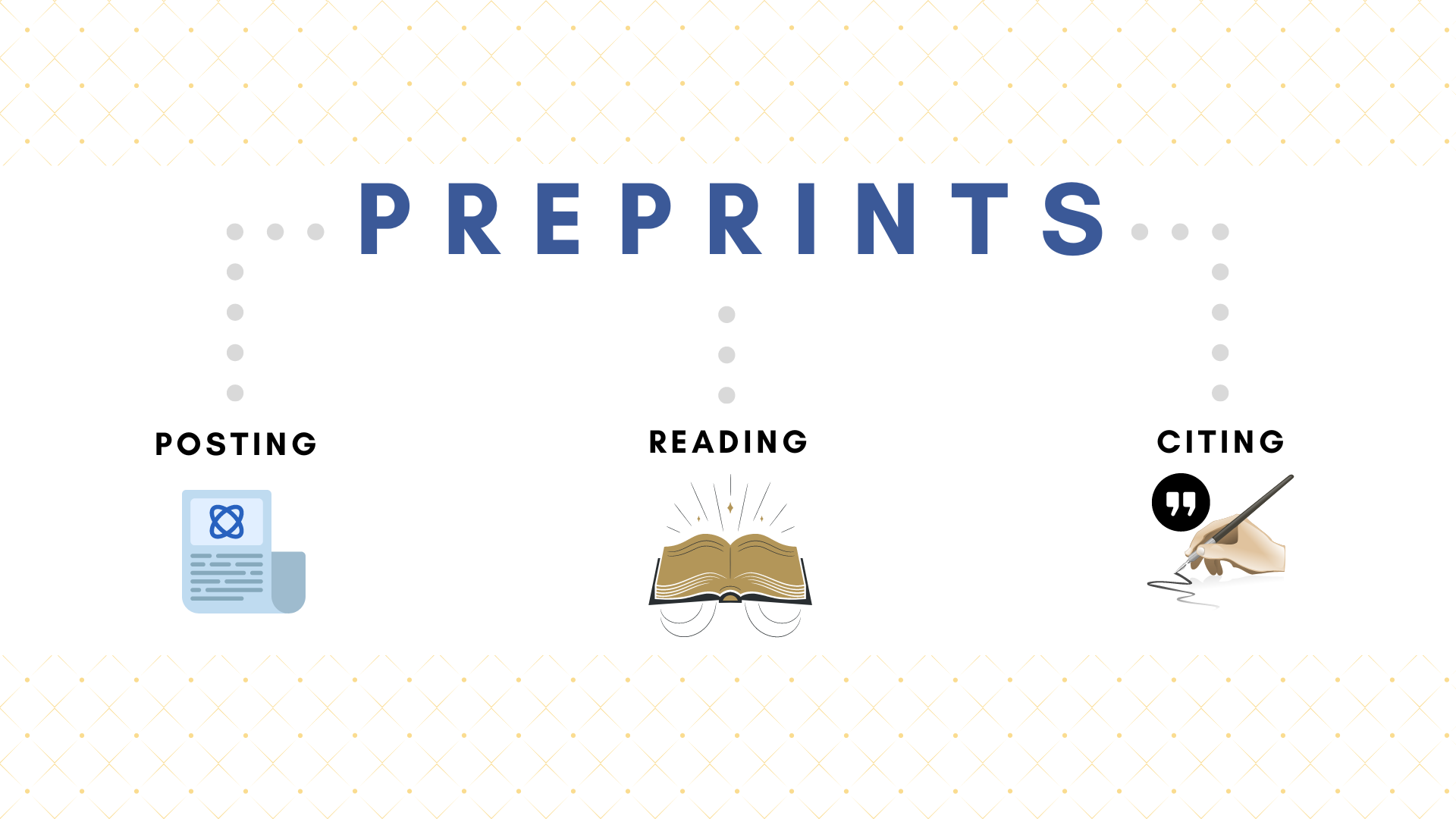Tag: preprint

Towards a Framework to Measure Open Science Practices – PLOS Open Science Indicators
Open Science is “transparent and accessible knowledge that is shared and developed through collaborative networks” (Vicente-Saez & Martinez-Fuentes, 2018, p. 434). It encompasses emerging trends such as open code, open data, open access, and more. PLOS (Public Library of Science) is a non-profit, open access publisher in science and medicine, and perhaps, a journal publisher…
Read More
Preprints 2: Concerns and Implications
Following the previous post on introduction and benefits of preprints, this blog post will briefly introduce concerns on preprints and some implications to readers and authors. Missed the previous post? Check the post here. Concern of preprints Quality While preprints play an unprecedented role in promoting timely dissemination of biomedical knowledge during COVID-19 pandemic, skeptics…
Read More
Preprints 1: Speed, Readership, and Citation Advantage
This blog post will briefly introduce preprints and their benefits. In the next post, the concerns of preprints and implications to authors and readers will be discussed. Stay tuned! Introduction Preprint is a version of a scholarly paper preceding formal peer review. Since the launch of arXiv (https://arxiv.org/), the very first preprint server used by…
Read More